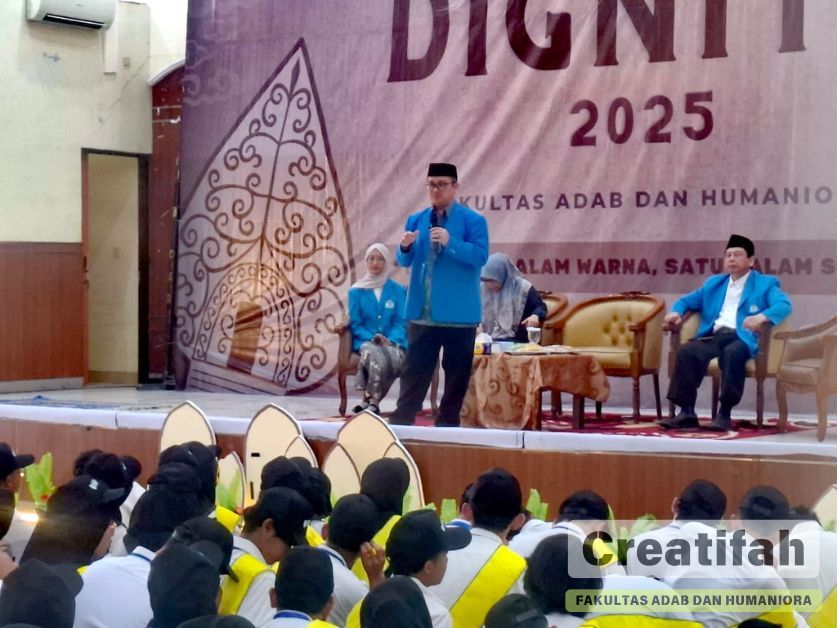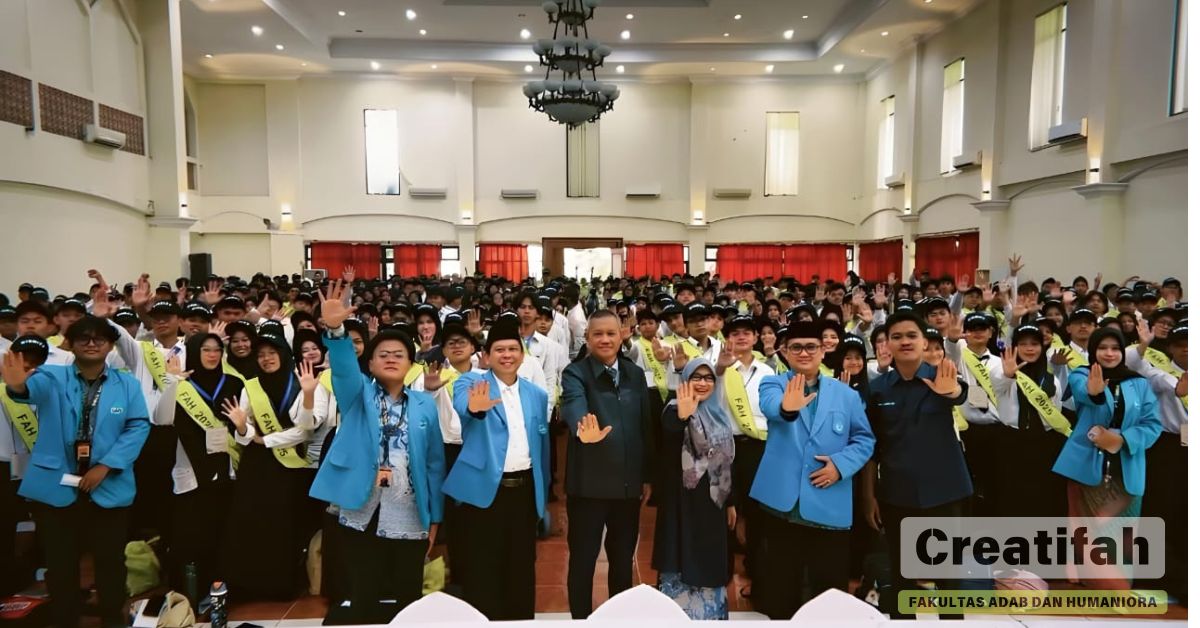FAH Records the Highest Number of New Students, PBAK 2025 Welcomes 815 Participants with Enthusiasm
South Tangerang, FAH Online News - The Faculty of Adab and Humanities (FAH), UIN Syarif Hidayatullah Jakarta, has recorded the highest number of new students in the 2025/2026 academic year. A total of 815 new students officially joined and participated in the series of events of the Academic and Student Culture Orientation Program (PBAK) FAH 2025, which began on Thursday (28/8) at Syahida Inn.
According to the organizing committee’s data, the new students are distributed across five study programs: Islamic Civilization History (217 students), Arabic Language and Literature (205), Library Science (172), English Literature (170), and Translation (51). This number makes FAH one of the most popular faculties at UIN Jakarta this year.
PBAK Events at the Faculty of Adab and Humanities
From as early as 5:00 a.m., the PBAK FAH 2025 committee was already present at the venue preparing for the event. The new students began to arrive at 6:00 a.m., welcomed with registration and a Saman Dance performance as the Grand Opening, which immediately created a festive atmosphere.
The official ceremony started at 7:00 a.m. with the recitation of the Holy Qur’an by Falah Dzulhijjah (5th semester), followed by the singing of the Indonesian national anthem Indonesia Raya and the UIN Hymn led by Syahla Mirfa Suri (5th semester).
The first speech was delivered by Hilal Falah, Chair of PBAK FAH 2025, followed by Firman Almuhtadi, Chair of DEMA FAH 2025. The event was then officially opened by the Dean of FAH through a symbolic pinning of attributes on a representative of the new students.
Distinguished Guest and Keynote Speech
This year’s PBAK program was made even more special with the presence of Fitroh Rohcahyanto, Deputy Chair of the Corruption Eradication Commission (KPK RI), as the keynote speaker. In his address, he emphasized the importance of student integrity as the anti-corruption generation:
“Students can monitor corruption on campus. We are spreading anti-corruption tasks to uphold integrity,” he stressed.
He also highlighted the role of universities as the last stronghold in safeguarding national values:
“One day, among you, some may become lecturers, deans, directors, or even join the KPK,” he said, to enthusiastic applause.
Academic and Cultural Materials
After the opening, students received introductory academic materials from the faculty leadership. The session encouraged students to achieve both academic and non-academic excellence through organizations, competitions, and social activities, with an emphasis on mastering foreign languages as preparation for global competition.
This was followed by a cultural session presented by Dr. H. Gugun Gumilar, MA., Ph.D., who shared inspiring stories of outstanding students and alumni. The session motivated students to actively engage in seminars, training, and cross-cultural activities.
After the lunch break, students attended a session on Self Leadership delivered by Handika Surbakti, M.Si. (Co-Director of Mata Garuda LPDP and Director of Programs & Partnerships at AFSI), moderated by Meisa Atavia Putri. This was followed by Campus Anthropology delivered by Hanif Hidayatullah, M.A., moderated by Zaki Wijdan (5th semester). In between, the committee included ice-breaking sessions to keep participants energized.
Entertainment and Closing
Toward the evening, the event grew livelier with a music performance by the band Riak. The first day concluded with an evaluation and technical coordination by the committee.
The first day of PBAK FAH 2025 ran smoothly and with great enthusiasm. Beyond being a welcoming event for new students, it also served as an important moment for FAH to introduce academic culture, cultural activities, and the spirit of leadership.
With a total of 815 new students, the Faculty of Adab and Humanities reaffirms its position as one of the most sought-after faculties at UIN Jakarta, while strengthening its identity as a center for humanities studies at the university.
Written by: Muhammad Suyuthi Alkautsar
Documentation:



